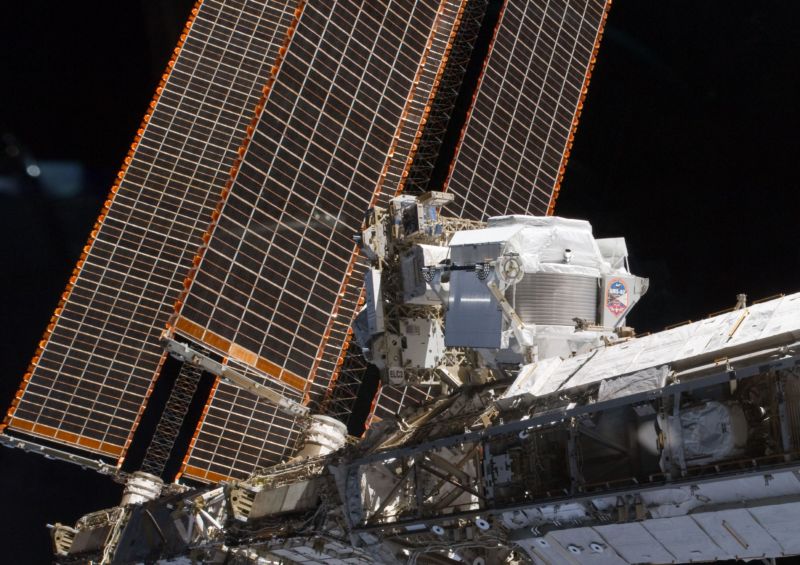
Launched to the International Space Station in 2011 on the penultimate flight of the Space Shuttle, the Alpha Magnetic Spectrometer has quietly been collecting data during the last six years, observing more than 100 billion cosmic ray events. Although it has yet to produce any major scientific findings, physicists believe the steady accumulation of data will eventually yield insights about dark matter and other cosmic mysteries.
But for that to happen, the instrument has to continue to take data. In recent months, scientists monitoring the $2 billion AMS instrument have noticed an increase in the "degradation" of several of the pumps that operate the thermal cooling system on its silicon tracker. Three of the four pumps have now essentially failed, leaving just one functional cooling pump. Only one is required, but the cooling system has now lost all of its redundancy.
To remedy this problem, physicists associated with the experiment have begun working with a team at NASA to devise a long-range strategy that would extend the life of the AMS. According to one source, this could culminate in a "Hubble-esque" series of spacewalks to repair its cooling system.
First, however, engineers need more information. During a NASA briefing on Wednesday at Johnson Space Center, the space station's operations integration manager, Kenny Todd, disclosed that a spacewalk likely to occur sometime in April would further this investigation. "They have come to us and said we want to look at some options to do some corrective action down the line with these pumps," Todd said of the AMS scientists.
As part of a spacewalk primarily focused on other tasks, European astronaut Thomas Pesquet will use a small tool to determine whether a "1553 terminator" on the AMS instrument remains functional. The tool for this will be delivered by Orbital ATK's next Cygnus supply spacecraft. It had been due to arrive next week, allowing the spacewalk to occur on April 6, but the Cygnus launch has since been delayed due to a problem with its Atlas V rocket.
This terminator lies at the end of the bus that carries data to and from the AMS instrument. If the terminator is broken, it will create echoes that may disrupt communication and might provide some insight into the failure of the cooling system. If the terminator is operational, a future fix might use the same connection to allow command-and-control for a new set of pumps. In any case, Ars understands that the installation of a new set of pumps would require fairly intensive work, including the removal of insulation and multiple spacewalks. For now, however, the plan appears to be to use regular space station crew members rather than an additional, short-term repair crew sent to the station.
reader comments
49